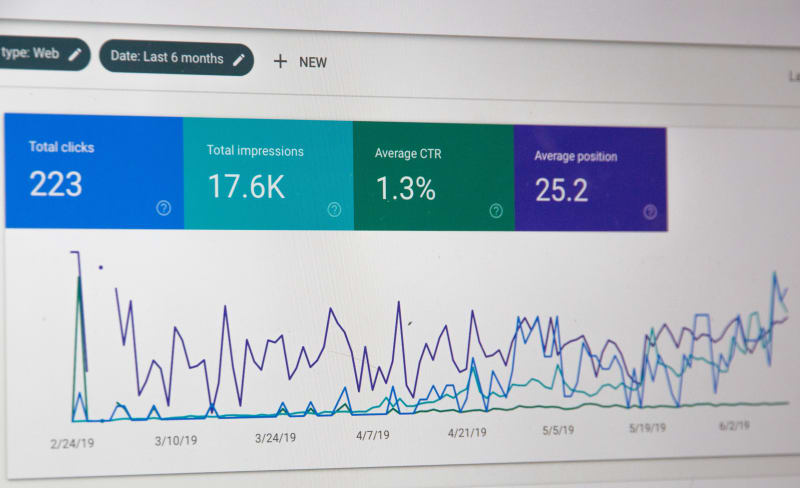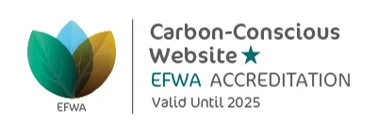
How many times have you thought you would just have a quick browse on the web? Chances are you will start reading one article only to find an interesting link to another website, and then another, and before you know it hours will have gone by.
It’s this ability to link so easily between different websites which makes the internet such a powerful resource. Yes, you sometimes end up going down a rabbit-hole, but more likely than not, you’ll end up with a much more thorough understanding of whatever you were looking for originally.
It’s hardly surprising then that external links are an important part of SEO. This article looks at why this is the case, the best way of acquiring external links as well as some of the things you definitely shouldn’t do.
Why external links are so important to your SEO strategy
Also known as backlinks or inbound links, external links are links from another website to your site. The reason they are so important in SEO is if a website links to your content, they are indicating they find that page to be valuable and of high quality. Google considers high quality content to be one of the key factors affecting how sites rank in search results, so the more backlinks your content has the more it demonstrates you are a trusted authority in a particular area. This in turn means your website is more likely to rank higher in search engine results. This backlinking is a factor which is built into the Google ranking algorithm.
But it’s not just an improvement in search rankings that external links help with. Backlinks also:
- Help search engines find new pages: a link from a trusted source will help your content be indexed faster by search engines.
- Boost your credibility as a business: if your site has links from trusted sources such as the BBC or from a site which has a strong reputation in your sector, then it’s an indicator you are a trustworthy and credible business.
- Sends referral traffic to your website: having links on other websites is a great way of getting people to click through to your content and introducing your company to potential future customers.

What type of external links should you be acquiring?
It’s also worth noting that improving your search ranking is not just related to the number of incoming links, quality of links matters more. So, while it might be tempting to think links from any website to your site will keep search engines happy, that’s not actually the case. You should be looking for external links from sources which are:
-
Relevant: links should be from sources relevant to your business. This helps Google understand more about the nature of your business which will then help you rank for a particular topic. For example, if you are a Pilates teacher look to get links on health, fitness, and leisure websites.
-
Have high authority: links from trusted sources, such as news organisations, education websites (ac.uk) or government websites (gov.uk) or websites which have a good reputation in a given sector are preferable to those from less-credible sources.
-
Diverse: while it might be tempting to just list your website in every online directory, Google prefers a ‘natural link profile’, which means links should come from a variety of sources and appear to be a natural fit with your content.

It’s also worth remembering that links work both ways. While getting links to your site from other worthwhile websites is important, you should also be directing users to content on other websites.
Not only will this boost your business’s credibility, as you will be helping your visitors learn more about a particular topic, but it will also help with your search engine rankings as Google looks favourably on anything that improves user experience. Just make sure you use the criteria above and only link to articles or sites which are relevant and have high authority.
How to get links into your site
Getting links into your site isn’t necessarily easy, especially since it is not a one-off exercise, but something you need to proactively be doing on a regular basis.
Ideas of where you could get backlinks include:
- Ask your customers, partners or suppliers to link to you
- Add listings to website directories relevant to your business
- Ask people to share your website on social media platforms
- If a site mentions your company, ask them to turn the mention into a link
- Use review websites such as Google or TrustPilot
- Ask for links to be posted on local organisation websites such as your local Chamber of Commerce
- Ask bloggers to talk about your business
- Write guests blogs for industry specific websites
- Leave thoughtful comments on popular or trending articles to demonstrate your knowledge and expertise
- And don’t shy away from sending cold emails to people who you would like to link to your site. A simple, friendly request may be all is takes
Of course, the easiest links to acquire are those that happen without you having to do anything, so I would also recommend you consistently create high-quality content as this is the best way to organically obtain external links.

Things you definitely shouldn’t do
Although acquiring backlinks is hard work, this doesn’t mean you should resort to easy, but questionable methods such as:
- Purchasing links
- Linking to dubious websites
- Automating blog comments, so they are either irrelevant or appear across a number of different sites
- Creating hundreds of forum profiles with a link to your website, but then not participating in any discussions
These methods will not help with your search engine rankings and could see your site be penalised, or in extreme circumstances, be banned by search engines.
Another thing to avoid is using ‘Click here’ or ‘Learn more’. Link text should always be descriptive, so users and search engines can easily understand what type of content they will be clicking through to. This is good for SEO and also for making your website accessible.
Here’s a list of other phrases you should avoid.

What about internal links?
Internal links are simply links between the pages within your own website. As well as helping users navigate around your site, it also keeps people on your site for longer as you are directing them to content relevant to the topic, they are interested in. This is looked on favourably by search engines, as it helps improve the user experience, so whenever you write content make sure to include some internal links.
Need help creating a link building strategy?
Link building is an important part of any SEO strategy, and a good starting point is to review the links you currently have coming into your site. Our SEO audits identify existing backlinks, review their quality, and make recommendations on what steps you should take next. If you would like to find out more, please get in touch.
